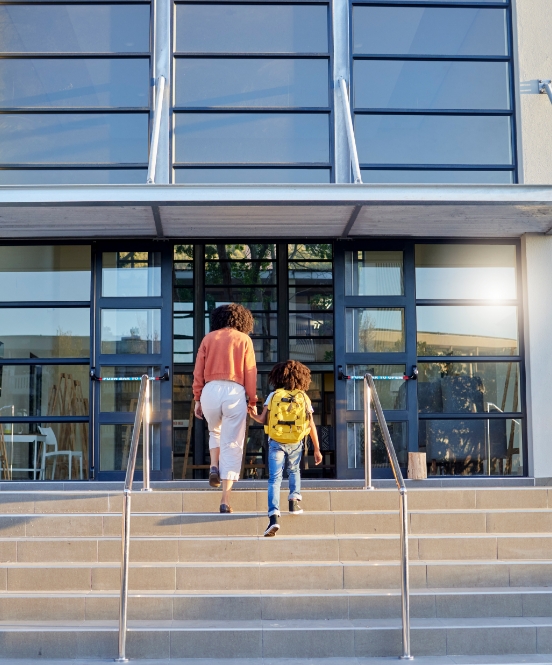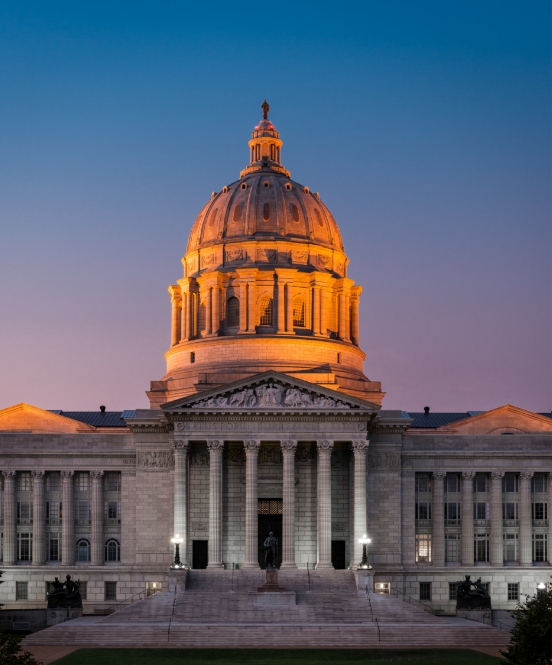To the casual observer of state government, Missouri’s 2022 legislative session was dominated with headlines about infighting, gridlock and arguments over political maps. By its mid-May adjournment, the Missouri General Assembly had passed its fewest number of bills in at least 40 years, excluding the pandemic-shortened 2020 session.
But look more closely and you’ll see that the 2022 session’s signature legislative accomplishment, a bipartisan legislative compromise that makes a historic investment in urban education by fully funding our public charter schools, while holding the Kansas City and St. Louis school districts harmless, was an enormous win for all Missouri public-school students and parents.
It should also serve as a template for the path forward, a shining example of how when parents, teachers, advocates, activists, administrators and elected leaders come together in collaboration, the real winners are our kids.
House Bill 1552, which was signed into law by Gov. Parson, eliminates an 18-year-old glitch in the state’s charter school funding formula that had shortchanged more than 25,000 public school students in Missouri’s two largest cities of tens of millions of dollars annually.
The legislation updates a charter school funding formula largely based on local property tax rates that hadn’t been updated since 2004-05 — even as charter enrollment in both Kansas City and St. Louis surges, approaching 50 percent in both communities, and with combined charter enrollment of more than 25,000 students.
Those two cities are the only in Missouri where charter public schools currently operate, though a new charter school is scheduled to open this fall in St. Louis County’s Normandy school district.

Through compromise and consensus, education reformers and parents were working hand-in-hand with teachers’ unions and public-school districts to lobby for the bill’s passage — a scenario thought to be impossible only months earlier.

In fiscal year 2020, the property-tax disparity created a $1,700 funding gap for Kansas City charter students compared to those in district schools. The gap was even wider in St. Louis, where charter students were receiving about $2,500 less than their district counterparts.
The new legislation will infuse an additional $62 million to $74 million annually toward K-12 public education, fully funding charter public schools in Missouri for the first time while also keeping local school districts whole.
The template for this legislative compromise gained steam in Kansas City, starting in 2019 with conversations among the Missouri Charter Public School Association, Kansas City charter school leaders and their counterparts in Kansas City Public Schools.
With a willingness to engage — and put kids first — the leadership of Kansas City Public Schools was crucial to the compromise’s eventual success in Jefferson City.
In the Capitol, the same Republicans and Democrats, representatives and senators who are often at odds didn’t kick this funding inequity problem down the road one more year. Instead, they forged consensus that led to HB 1552’s approval by a 116-29 vote – more than 30 additional ‘yes’ votes compared to an earlier House version, after the Missouri Senate had passed the bill by a vote of 29-5.
Through compromise and consensus, education reformers and parents were working hand-in-hand with teachers’ unions and public-school districts to lobby for the bill’s passage — a scenario thought to be impossible only months earlier.
Gridlock aside, charter funding equity was one of just several bills passed in the 2022 legislative session that will benefit Missouri public education.
Among those is a more than 50 percent increase to Missouri’s minimum starting teacher pay, as well as full funding of the state’s 75% share of school transportation costs for the first time in more than three decades, which frees up more money for classrooms.
Other needed public education reforms, though, didn’t cross the finish line. That includes House Bill 2652, the College and Career Readiness Act, which would add some sorely needed accountability to the state’s public-school accreditation and student assessment system through the tracking of student performance by individual public elementary and secondary schools rather than by district. Additionally, policies to alleviate Missouri’s teacher shortage are also in desperate need of attention.
With a fast-approaching August party primary followed by the November general election, most of our citizen-lawmakers are immersed in either re-election bids or runs for higher office.
When they return to the Capitol in just over six months for the 2023 session, I encourage our legislators (as well as those in the education policy trenches) to remember – and build upon – this collaborative approach. Nothing less than our children’s future is at stake.
For more information like this, see Missouri independent

Dean Johnson | President, CEO and Founder of the Quality Schools Coalition
